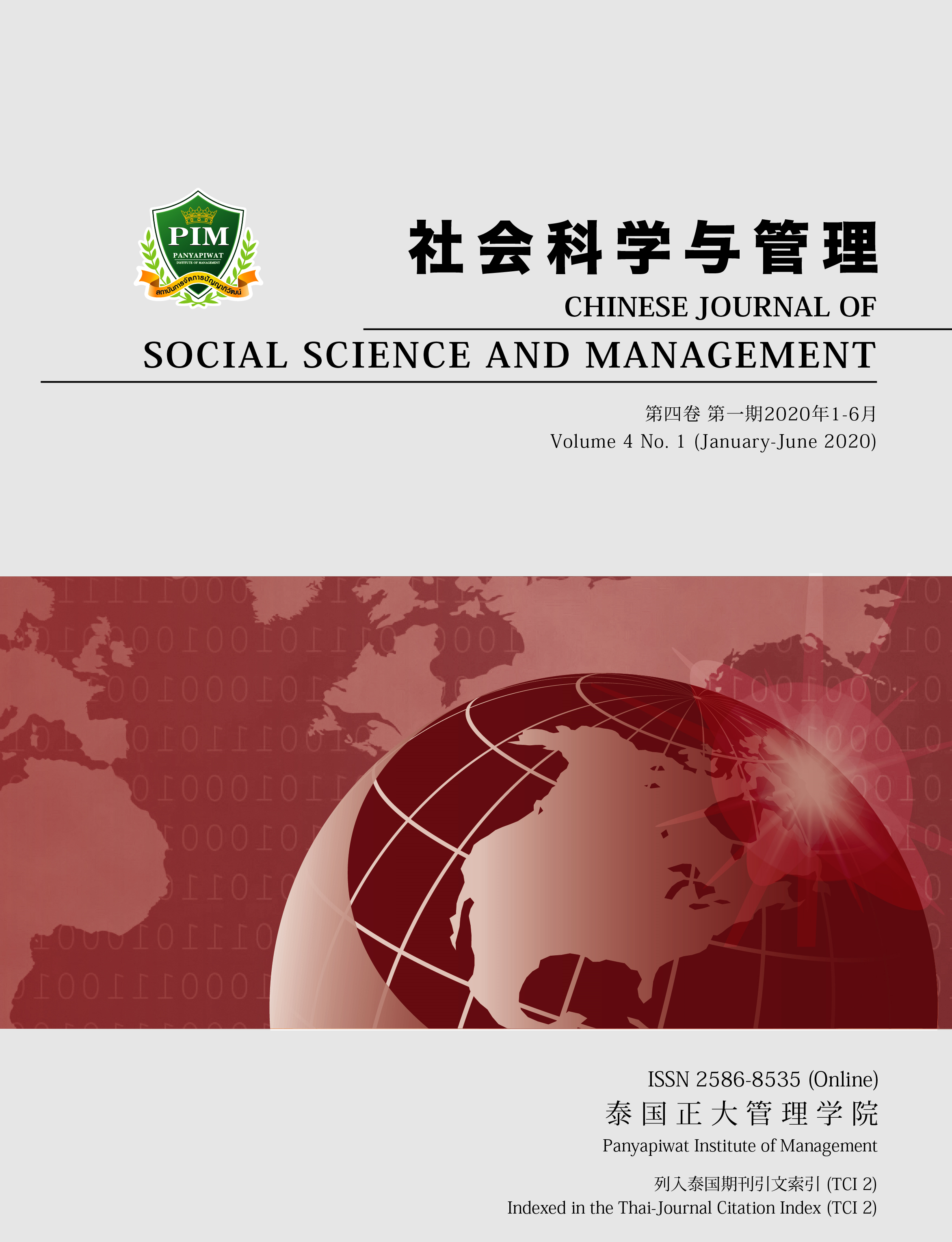RESEARCH ON THE INFLUENCE OF INCLUSIVE LEADERSHIP ON EMPLOYEE TURNOVER INTENTION
Main Article Content
Abstract
Abstract
In the new economic environment represented by mobile interconnection, big data and artificial intelligence, with the new generation of knowledge workers as the main body, enterprises are gradually presenting new features such as human resources diversification, cultural differentiation and demand diversification. The composition and deep diversity of employees in the enterprises’ organizations are increasingly more prominent. Therefore, it is a new topic to study regarding whether inclusive leadership can adapt to the leadership roles and have an influence on the turnover tendency in the development of knowledge-based enterprises.
This study, by using the example of an asset appraisal firm in Beijing, innovatively proposed a model of inclusive leadership for corporate teams. The measurement tool of this model is a scale proposed by Mobley, Rieckhoff & Voigt (1977) that mainly measures the change of employees’ impressions of the company, the idea of leaving the job, the behavior when seeking another job and the possibility of finding a job. It reveals a negative correlation between inclusive leadership and employee turnover in partnerships. Secondly, in terms of the theoretical and empirical aspects, it proves the applicability of the partnership enterprises with inclusive leadership in the Chinese context and lays a foundation for the empirical research of more inclusive leaders in the future.
This study confirms the applicability of inclusive leadership in partnerships in China and provides reference for the improvement of partner leadership in model companies and other partnerships. It also provides recommendations for companies to effectively reduce employee turnover.
Article Details
Chinese Journal of Social Science and Management Editorial Division
The Office of Research and Development, Panyapiwat Institute of Management
85/1 Moo 2, Chaengwattana Rd., Bang Talat, Pakkred, Nonthaburi 11120, Thailand
Tel. 02 855 01048 E-mail: cjssm@pim.ac.th
References
Anja, V. D. B., Vansteenkiste, M., De Witte, H., Soenens, B. & Lens, W. (2010). Achieving autonomy, competence, and relevance at work: Construction and preliminary verification of job-related basic needs satisfaction scales. Journal of Career and Organizational Psychology 83(4), 981-1002.
Cammann, C., Fichman, M., Jenkins, D. & Klesh, J. (1979). The Michigan Organizational Assessment Questionnaire. Unpublished Manuscript, University of Michigan, Ann Arbor, MI.
Carmeli, I., Lieberman, I., Kraversky, L., Fan, Z., Govorov, A. O. & Markovich, G. (2010). Broad band enhancement of light absorption in photosystem i by metal nanoparticle antennas. Nano Letters, 10(6), 2069.
Day, D. V. & Antonakis, J. (2013). The future of leadership. The Wiley-Blackwell handbook of the psychology of leadership, change, and organizational development.
Festekjian, A., Tram, S., Murray, C. B., Sy, T. & Huynh, H. P. (2014). I see me the way you see me: The influence of race on interpersonal and intrapersonal leadership perceptions. Journal of Leadership & Organizational Studies, 21(1), 102-119.
Fu, Y. Q., Ling, W. K. & Fang, L. L. (2002). Factors Affecting the Turnover Intention of Enterprise Employees. China Labor, (7), 152-153. [in Chinese]
Gao, H. (2010). Discussion on Inclusive Leadership Based on Enterprise Core Competence. Shanghai Management Science, (6), 10-13. [in Chinese]
Kearney, E. & Gebert, D. (2009). Managing diversity and enhancing team outcomes: the promise of transformational leadership. Journal of Applied Psychology, 94(1), 77-89.
Komives, S. R., Lucas, N. & Mcmahon, T. R. (1998). Exploring Leadership. Jossey-Bass Publishers.
Ma, Y. R., Cheng, W. B. & Zhou, J. M. (2014). The role of psychological ownership and cynicism in the influence of inclusive leadership on employee turnover intentions. Journal of Central South University (Social Science Edition), 20(3), 6-12. [in Chinese]
Mobley, M. J., Rieckhoff, K. E. & Voigt, E. M. (1977). The temperature dependence of multiple charge-transfer bands in. pi.-.pi. Electron donor-acceptor complexes. J.phys.chem, 81(8), 809-810.
Shore, L. M., Randel, A. E., Chung, B. G., Dean, M. A., Holcombe Ehrhart, K. & Singh, G. (2011). Inclusion and diversity in work groups: A review and model for future research. Journal of Management, 37(4), 1262-1289.
Shore, L. M., Tetrick, L. E., Lynch, P. & Barksdale, K. (2006). Social and economic exchange: Construct development and validation. Journal of Applied Social Psychology, 36(4), 837-867.
Wright, T. A. & Cropanzano, R. (1998). Emotional exhaustion is a predictor of job performance and voluntary separation. Journal of Applied Psychology, 83(3), 486-93.


